
The Future of Leadership
At InsideHook, we believe that leaders can be found everywhere. Leaders know no age, ethnicity, gender, sexual identity, nationality, religion or profession. What they share in common is an intrinsic, indispensable ability to inspire others and a desire to make the world a better place. We believe these qualities are more important now than ever.
Thus we are proud to introduce The Future of Leadership, an annual feature in which we’re bringing together a diverse collection of individuals who are doing meaningful work to enact change within their industry and/or American society at large.
We asked each of these individuals three very simple questions:
1. What does being a leader mean to you in 2020?
2. How is the concept of leadership changing/evolving?
3. Where would you like to see it go moving forward?
From politicians to athletes, activists to entrepreneurs, it is our hope that their collective insights on what it means to be a leader in 2020 (and beyond) can serve as an inspirational and instructive document for readers everywhere.
Read on and lead on.
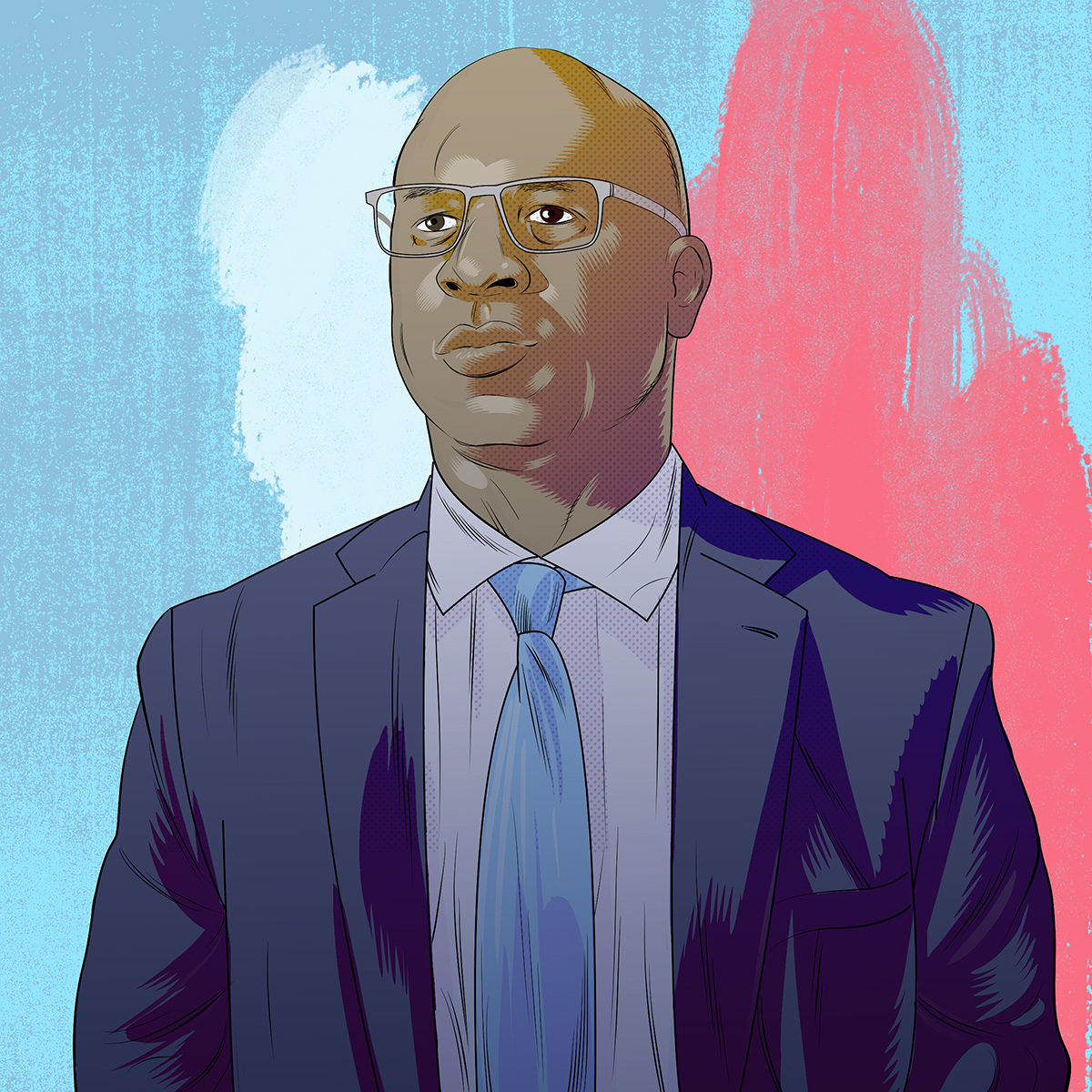
Jamaal Bowman
Educator and Politician
Veteran educator and politician Jamaal Bowman is the Democratic nominee for New York’s 16th Congressional district in the 2020 election. Bowman has fought for teachers, students and families for 20 years, having served as a steering committee member for NYSAPE as well as a member of the New York State Early Childhood Blue Ribbon Committee, where he championed early childhood learning standards. He has worked with Bronx Legal and Visiting Nurse Services to push for policy that trains every teacher in New York State in trauma-informed practices, as well as with Avenues: The World School, NegusWorld and Hip Hop Saves Lives to implement innovative design thinking and social justice curriculum. He recently earned his doctorate in education focusing on the benefit of the community school model, an alternative to charter schools. After seeing the failures in our education system, Jamaal started Cornerstone Academy for Social Action (CASA), an “innovative public school with a strong emphasis on student voice, holistic education, cultural awareness and love” located in the Baychester neighborhood of the Bronx.
“At a time like this, true leadership isn’t having authority — it’s being willing to challenge authority. It means fighting for the solutions we actually need, as opposed to what we think those in power will accept. A leader is someone who is willing to take bold stands and challenge the status quo to bring about transformative change. With all the problems we’re facing right now, we can’t afford to wait on those in power to act. We have to force the issue. And that’s what true leaders are stepping up and doing, whether it’s those running for office or those taking to the streets. In 2020, leadership means being willing to stick your neck out and embrace solutions that some will label as ‘radical’ — because the bottom line is, the way that we’ve been doing things isn’t working.
Just look at Congress. For a long time, we’ve tended to think of ‘leaders’ as the ones in positions of institutional power, the ones who have been there the longest. But the people in leadership positions aren’t leading on the most critical issues of our time, like climate, racism, inequality; they’re defending the status quo. It’s actually some of the newest members — people like AOC, Ayanna Pressley, Katie Porter, Rashida Tlaib and Ilhan Omar — who are truly leading. They’re defying the status quo, changing the debate, and pushing for the solutions we need.
I’d like to see more leaders with the courage to take political risks and advocate for a vision of where this country needs to go, instead of just reflecting where we’re at now. Our problems are so large and so entrenched that that’s going to look like a radical vision. But people are demanding change, and it’s the people in positions of leadership who are lagging behind. They are stuck in old ways of thinking that are preventing us from solving the problems we face with the ambition and urgency that this moment demands.
As we move forward, I would like to see our leaders in Congress restore our values of humanity, equality and justice and fight for those who are disenfranchised, including children with special needs, seniors, women and people of color.”
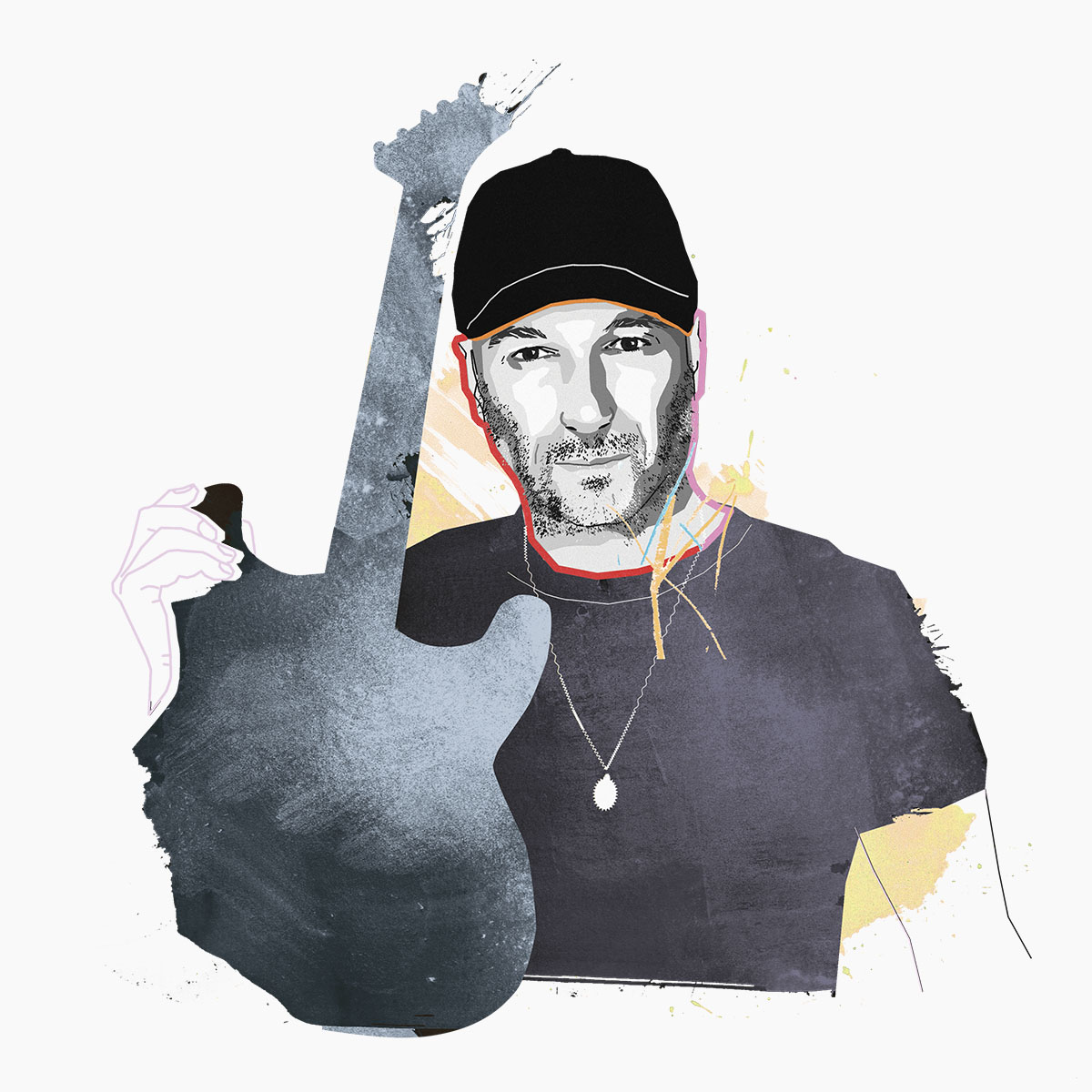
Tom Morello
Musician, Activist
Incendiary rock musician and acoustic troubadour Tom Morello is known the world over for his virtuosic guitar skills as an original member of iconic rock bands Rage Against the Machine and Audioslave, as well as his four solo albums as The Nightwatchman. Additionally, Morello is co-founder of the band Street Sweeper Social Club with Boots Riley of The Coup and creator of the genre-obliterating Atlas Underground Project, featuring collaborations with artists including RZA/GZA of Wu-Tang Clan, Gary Clark Jr., Pretty Lights, Big Boi and Killer Mike, among others. A lifelong political activist, Morello is a leading voice in the fight for social justice. His recent live show, entitled “Speaking Truth to Power Through Stories and Song,” is currently available via Audible, and his new photographic memoir Tom Morello: Whatever it Takes documents his remarkable life as a guitarist, songwriter, singer and valiant advocate for equality and human rights
“Meaningful leadership and change always comes from below. History has proven again and again that progressive, radical or even revolutionary change is possible and can be effected by people no different from yourself. Advances in civil rights, human rights, women’s rights, environmental rights and LGBTQIA+ rights have all been gained through actions of people who have no more power, money, courage, creativity or intelligence than anyone reading this. You are the leader that you are waiting for.
It seems to me that the idea of leadership is becoming more decentralized in a healthy way. With the advent of organizing and sharing real-time information via social media, there is less of an emphasis on some God-like figure leading a movement, and more of an emphasis on people taking action and reporting their own actions.
I wouldn’t mind seeing traditional ‘leadership’ go into the dust bin of history. Power corrupts, and in order to benefit all of humanity at this critical juncture of our planet’s history, it will take widespread coordinated democratic solutions to the overarching problems we face such as global warming, racism, the imminent threats of authoritarianism and economic inequity.”
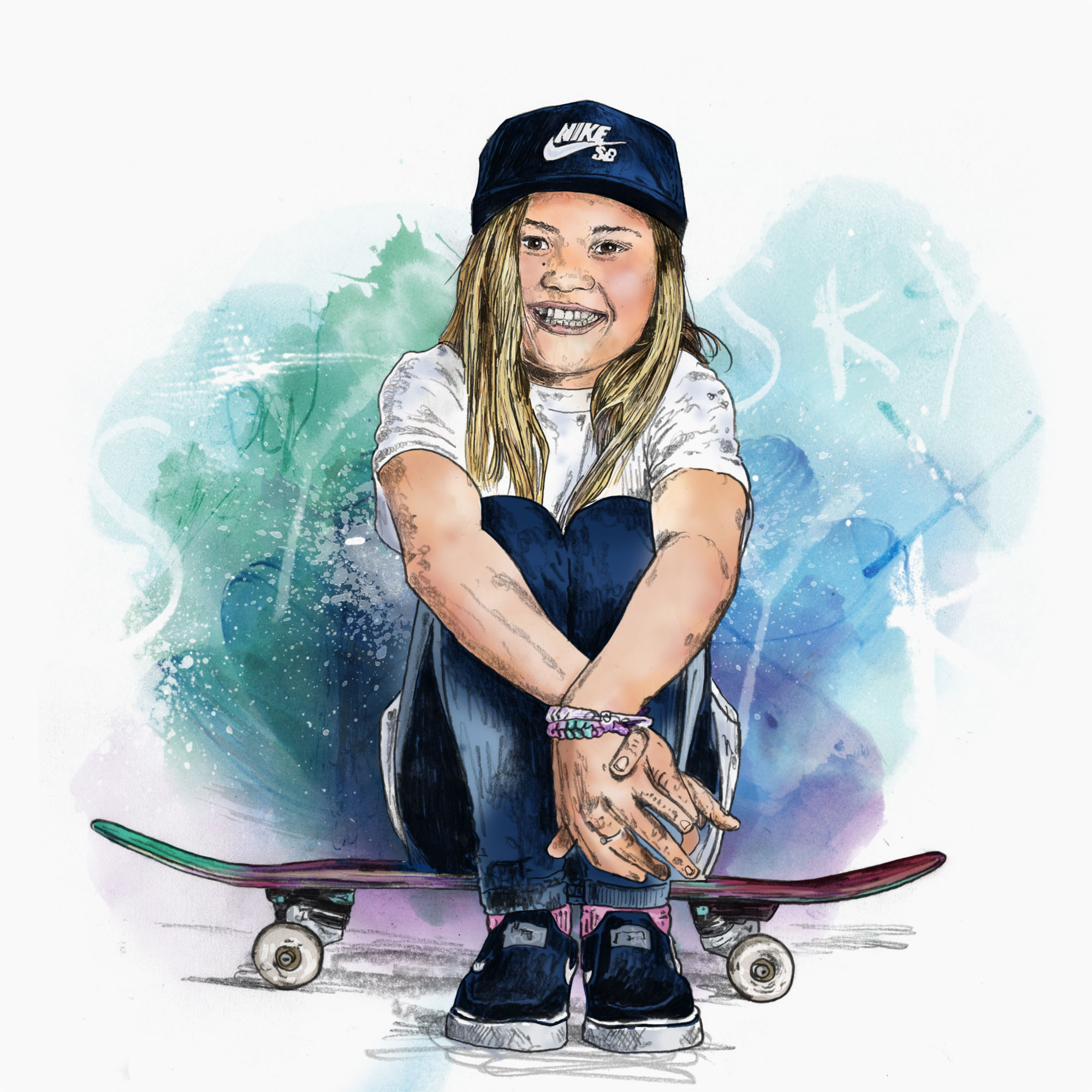
Sky Brown
Professional Skateboarder
Sky Brown is a 12-year-old professional skateboarder and surfer from Miyazaki, Japan. With a Japanese mother and a British father, Sky chose to compete for Team Great Britain in the 2020 (now 2021) Tokyo Olympics, making her one of the youngest athletes to compete in the Tokyo Olympic Games and Great Britain’s youngest Summer Olympian ever. Sky hopes to continue making history while inspiring young girls and women across the world to “reach for their dreams and become unstoppable.“
“For me, I want to tell boys and girls everywhere that they can do anything they dream of. There are no limits. Being a leader means that you can inspire people and help them believe something they didn’t believe before.
I think with social media, everyone can be a leader. Everyone now has a voice. I can show my journey on Instagram but so can other people. We all have the chance to inspire people.
Moving forward, I’d like to see more positive voices and more positive action.”
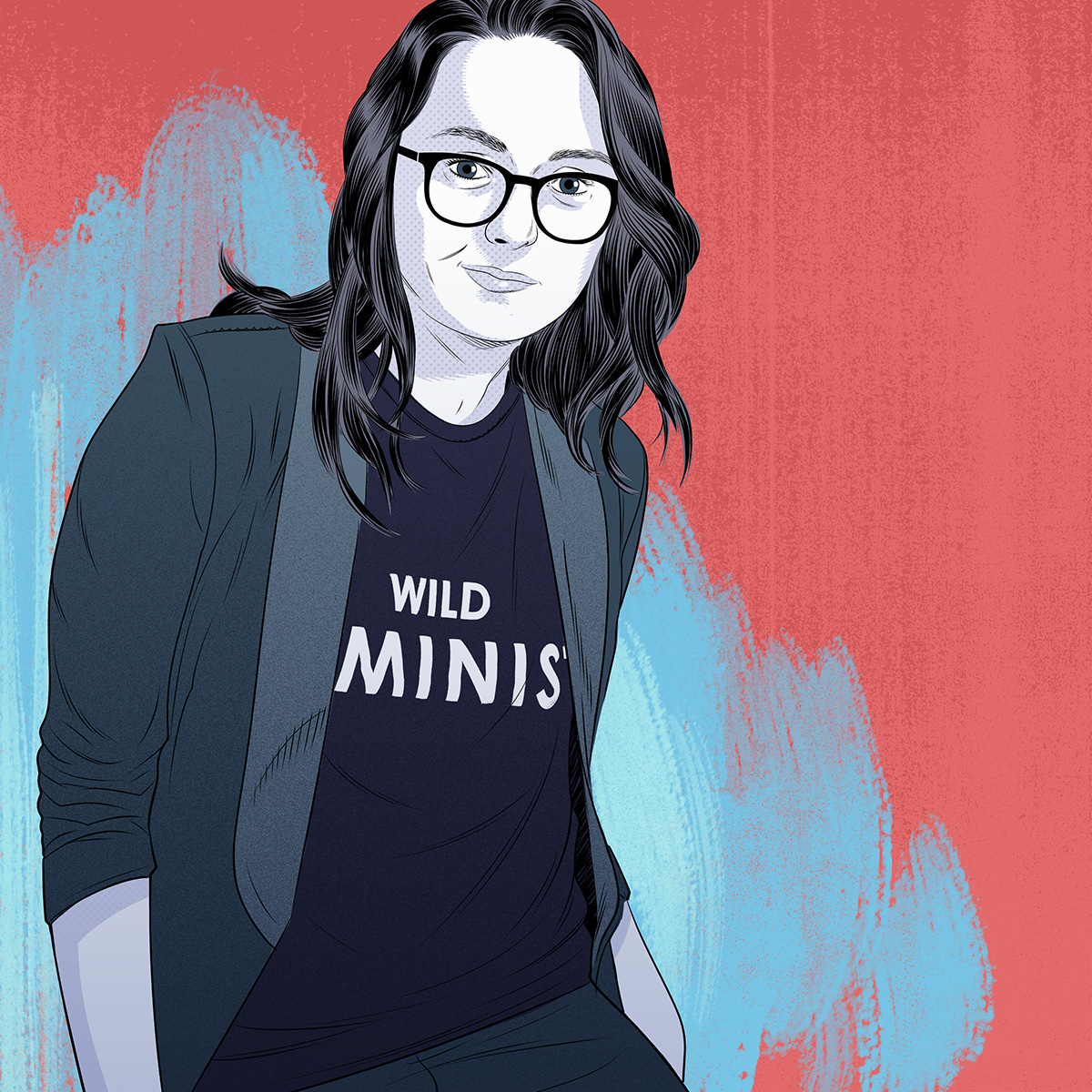
Emma Mcilroy
Author and Founder/CEO of Wildfang
Emma Mcilroy is the self-described “queer-feminist-Irish-immigrant-female CEO” of clothing line Wildfang, a brand she founded in 2013 with “the radical belief that a womxn has the right to wear whatever the hell she likes and be whoever the hell she likes.” Wildfang is now a multi-million dollar omni-channel business with four stores in three states and has been featured in the Guardian, the New York Times, Vice, Refinery 29 and Vogue. In 2018 alone, Wildfang raised over $500K for charities that support reproductive, immigrant and women’s/human rights. in 2019, Mcilroy was named one of Inc.’s Female Founders 100, Oregon Entrepreneur of the Year by OEN, and Executive of the Year by the Portland Business Journal. Additionally, Mcilroy is the author of A Kid’s Book About Feminism, part of the popular series of children’s books co-founded by author/publisher Jelani Memory.
“For me leadership is where vulnerability and humility meets bravery and strength. The two collide. Being clear on your values and making decisions others can rally behind, while also knowing you aren’t there yet and there’s lots to learn. Leadership to me is about clear unwavering values with constant learning and adaptation to apply those.
I think consumers and employees are demanding more transparency than ever. I also think accountability for leaders in small business is higher than it’s ever been. Lastly I’d say that recent movements around human rights and climate change have proven a leader can come from any industry, at any age.
Moving forward, I’d like to see us hold everyone to the same standards. I’d like us to engage in dialogue and listen more. I’d like to see us find middle ground more. To do our best to unite rather than divide. I’d like to see us focused on progress and solutions towards the end goal.”
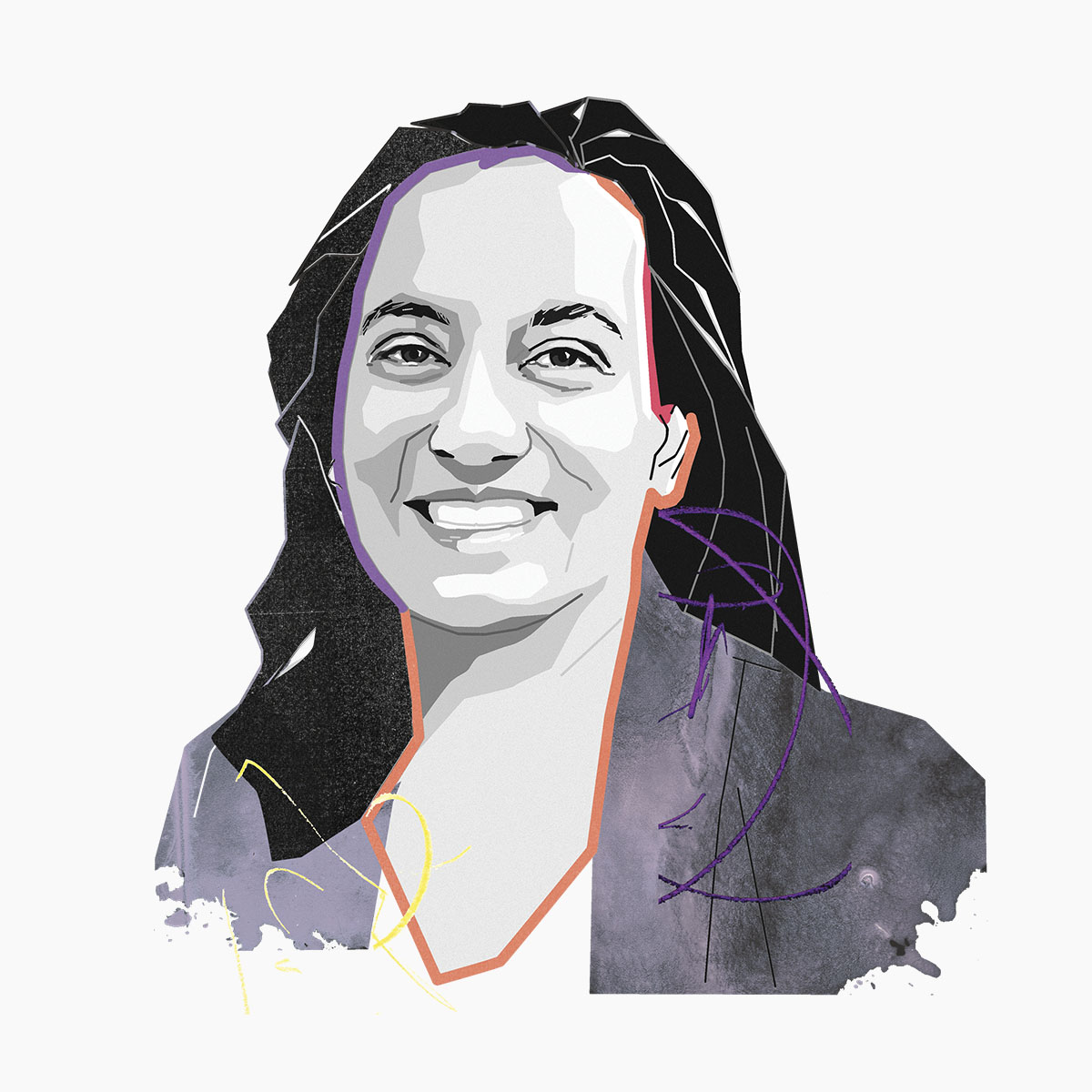
Shaolee Sen
CEO, Hot Bread Kitchen
An advocate for women, diversity, small business and social justice, Hot Bread Kitchen CEO Shaolee Sen started her career in community and economic development at The Bronx Defenders, establishing the Family Defense Project and securing representation for children and mothers. Founded in 2008, Hot Bread Kitchen is an NYC workforce development program that “provides job placement and economic mobility for women in New York City through careers in food.” Inspired by her mother’s entrepreneurial spirit and journey as an Indian immigrant, Shaolee is proud to be part of an organization directly impacting the lives of women.
“Being a leader in 2020 is a true test of flexibility and acceptance. Leaders constantly grapple with ambiguity, but 2020 has required us to find contentment and stillness within our problem-solving, clarity-seeking minds. I find myself ping-ponging between my ‘restful state’ brain and my ‘drive results’ brain more frequently than ever before. We have also had to build more reserves for tenacity, because the cycles of information and change are so rapid. Lastly, 2020 has been relentless in reminding me very personally what I am not good at — for me that is practicing patience, letting go and realizing that everything cannot excel, and certainly not excel at the same pace.
I don’t think the concept of leadership is changing. The leaders I look to for inspiration value inclusion and empathy and seek to nurture talent and momentum to create value. I think there is more emphasis and pressure on the practice of good leadership and building muscle memory for the things we value but don’t always execute well. Looking outward for support and feedback is key so that you don’t build an internal island. There is also more emphasis on humility and calling out bad habits, and that is great progress.
Moving forward I would like to see more practices and tools for collective and co-leadership, reflexive relationships and shared decision-making and accountabilities. As a mother of two young children in the middle of so much disruption on both micro (they are at home all the time on top of me) and macro (I am scared for the world they are inheriting) levels, I have felt constant frustration and exhaustion when the village of support disappeared overnight. It made me realize the value of this community (teachers, fellow parents, caregivers), and I am grateful that I was able to draw upon a great village at Hot Bread Kitchen to guide me just as much as I lead them.”
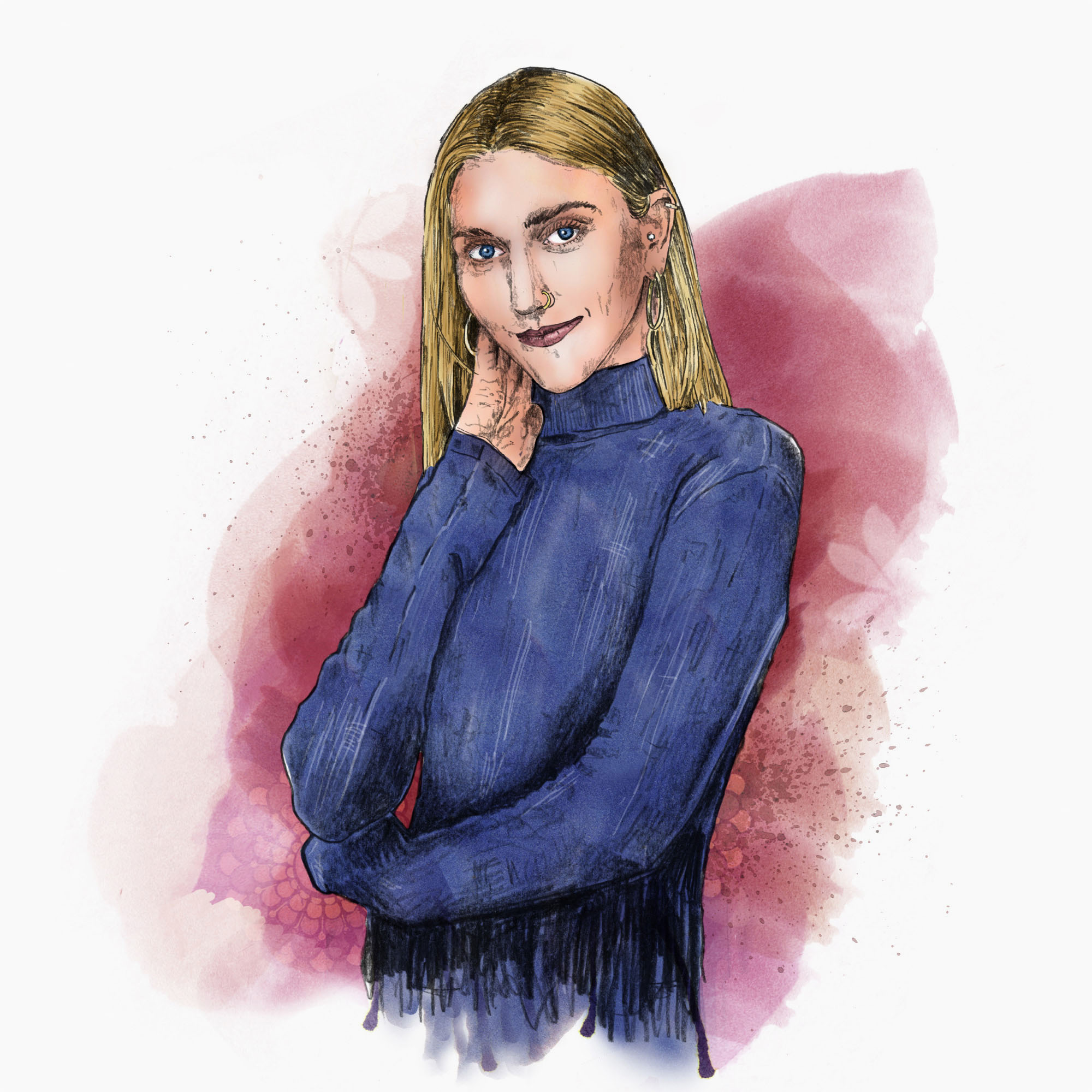
Erica Loewy
Creative Director, Playboy
Erica Loewy is the creative director at the heart of the revitalization of one of America’s most iconic brands: Playboy. Brand veteran Loewy has been at Playboy for more than three years, working her way up from brand coordinator to her current position as a driving force in a groundbreaking new era of inclusivity and sex positivity for the brand — one that has garnered massive praise across the media and social landscape. Loewy has worked tirelessly to reimagine “the Playboy gaze” and create work that is of-the-moment, inspired by Playboy’s iconic heritage, and, “of course, sexy.”
“Leadership is about teamwork, and most of all trusting in the team you cultivate. You can achieve very little alone. By surrounding yourself with people who have differing strengths but believe in a shared vision — that is the key to success. I get submissions from my team and firmly believe that, even if I love what they’ve initially presented, I always ask questions. Pushing the team for answers allows them to understand why their recommendation is good and worth fighting for. By encouraging this critical thinking, we always expand on our vision together and cross the finish line as a team with linked arms.
Individual expression is important to any team I am leading. The contrasting points of view each team member brings supports our overall innovation. Working outside of your comfort zone is crucial to your growth and I find that I’m uncomfortable — a lot! I make sure my team can see that discomfort so that they understand it’s okay for them to experience discomfort too. There is strength in vulnerability. There is a way to challenge people in such a way that excites and inspires them to be better at what they do and produce a better product. Fortunately, I believe you can do that while also being kind and supportive. It’s so important to let people know you believe in them. Motivating the team to put soul into the work and create with intention is what it’s all about.
More women should be in leadership positions, and more specifically, more women of color. We need diverse perspectives informing all levels of a corporate and creative process — the work will be better for it, 100% of the time. There should also be more empathy in the business world. There is a misconception that empathetic leaders are weak, but I’ve seen the greatest leaders born from other empathetic leaders and they are often responsible for some of the most inspiring projects. In essence, by understanding your surroundings and accepting differences, it expands your mind, creativity and allows you to see others’ perspectives.”
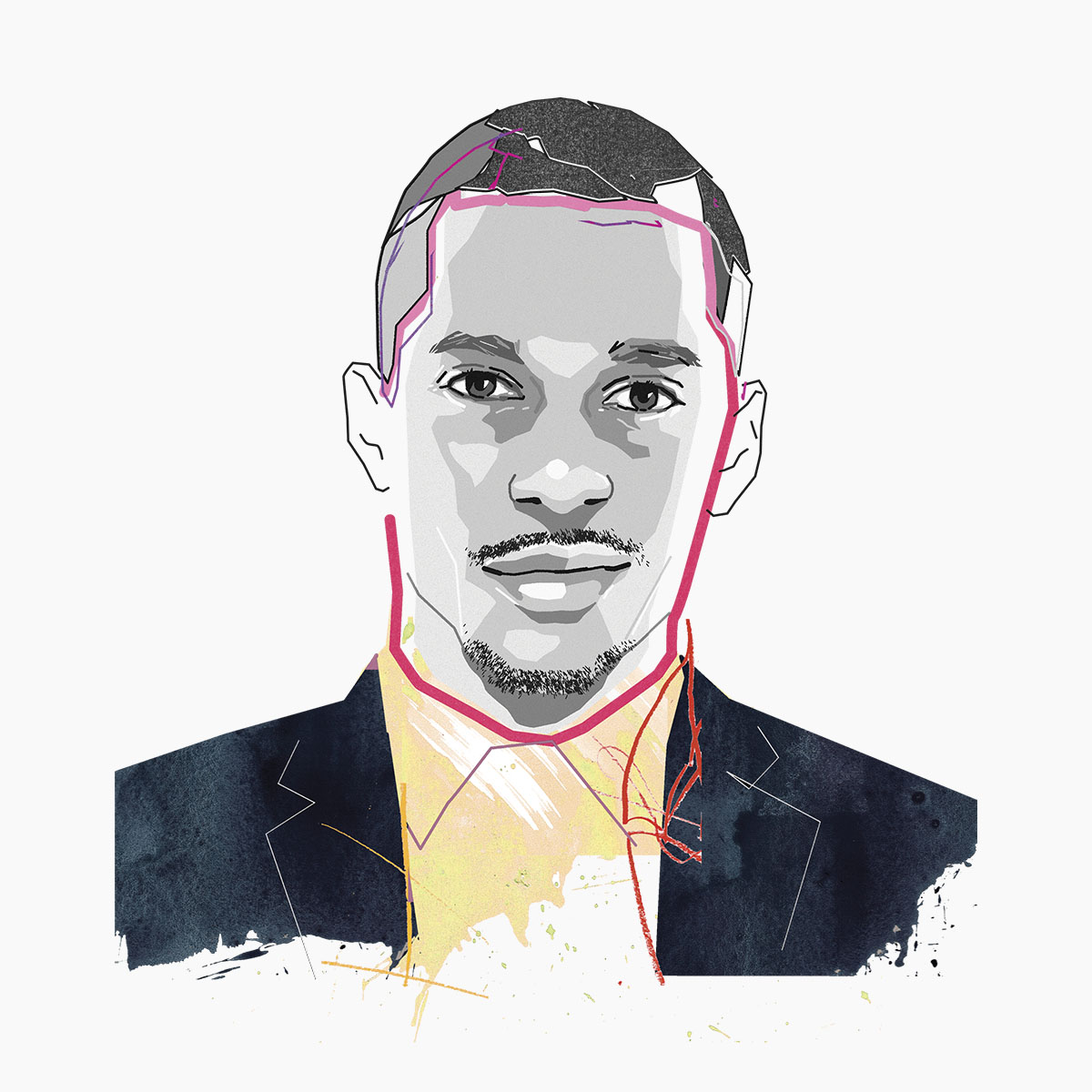
Victor Cruz
Former NFL player, Television Personality
Former NFL wide receiver Victor Cruz played seven seasons for the New York Giants and won a Super Bowl before retiring in 2018 to join ESPN as an analyst. In 2012, he established the Victor Cruz Foundation to promote positive change in the lives of youth by providing innovative educational programs that equip students with skill sets to prepare them for a successful future and committing to continued research and partnerships with STEM programs. In June 2014, the Victor Cruz Foundation helped fund the renovation of the Aquatics Center in the Boys & Girls Club of Paterson/Passaic, Cruz’s hometown. In addition, the Victor Cruz Foundation has helped the renovations of the club’s STEM Maker Lab, Multimedia center, Dance Studio and Art Studio. Cruz’s autobiography, Out of the Blue, a New York Times best seller, is “an inspiring account of how hard work, perseverance, and support from his loving family drove Victor’s success.” Cruz can currently be seen as the co-host of E!’s Pop of the Morning.
“A leader is someone who is putting action behind his words. Showing his/her leadership from the front. Not just saying you’re in favor of something, but putting those words into action in every way possible.
The concept [of leadership] is changing because more people are becoming leaders in their own right. In their own communities and neighborhoods, people are beginning to lead and unite everyone around them to understand that their voices can be heard. Coming together is the only way.
I’d like to see the continuation of leadership qualities across all fronts. From local levels all the way up to what we see on television and the things we see visually that shape the narratives. The youth have really stepped up in many ways over the course of 2020 to show how they lead, and have proven that their voices matter and putting action behind those words. I plan on connecting with more Black initiatives and making sure that becomes an integral part of all of my partnering efforts. Through my own personal efforts and using my foundation as a platform to amplify voices and help inspire the next generation of leaders.”
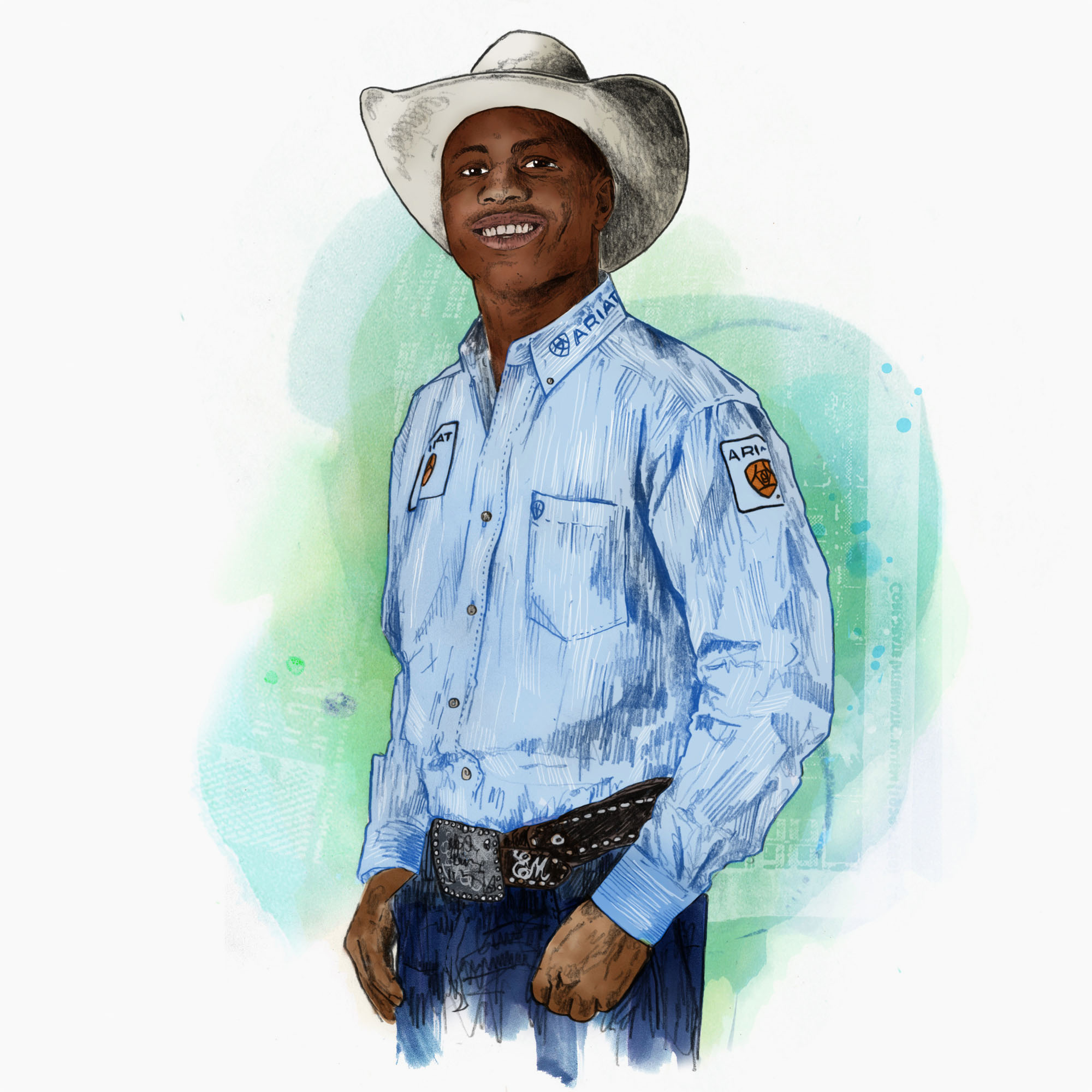
Ezekiel Mitchell
Professional Bull-Rider
23 year-old Ezekiel “Blue” Mitchell is one of the top professional bull-riders in the world. A native of Rockdale, Texas, Mitchell didn’t attend rodeo school or grow up steeped in familial rodeo tradition like many of his professional peers — instead, he did like any other Zoomer might when looking to learn a new skill: he turned to YouTube, learning the basics before building his own barrel in the backyard and enlisting his younger brothers to buck him on it. Today, Mitchell is sponsored by footwear and apparel brand Ariat and competes in PBR events all over the country, positioning himself to become just the second Black bull-rider to win a world title in the history of the sport, after legendary rider Charlie Sampson in 1982.
“A leader to me is someone who goes above and beyond despite the feelings of the people who follow them, to make sure that they are doing what’s best for the people that they’re leading. A leader is also a person that is willing to step up during these hard times and make the people around them smile and have something to look forward to, giving them hope and peace of mind in the year 2020, which has been a challenging year thus far.
I feel as if the concept of leadership has not changed over the course of time. A leader is somebody that’s going to step up and do the things that they need to do, and that will never change. The only thing that changes is the circumstances and how they handle those circumstances.
Going forward I would just like to see leaders of countries and leaders of anything take responsibility and action for what’s going on, instead of making things seem as bad as they are. Growing up, my parents always led the household and even when things were bad, they made things seem good. I feel like that’s what I would like to see moving forward — not someone who’s going to make excuses for what’s going on in the world, but somebody who is going to find solutions.”
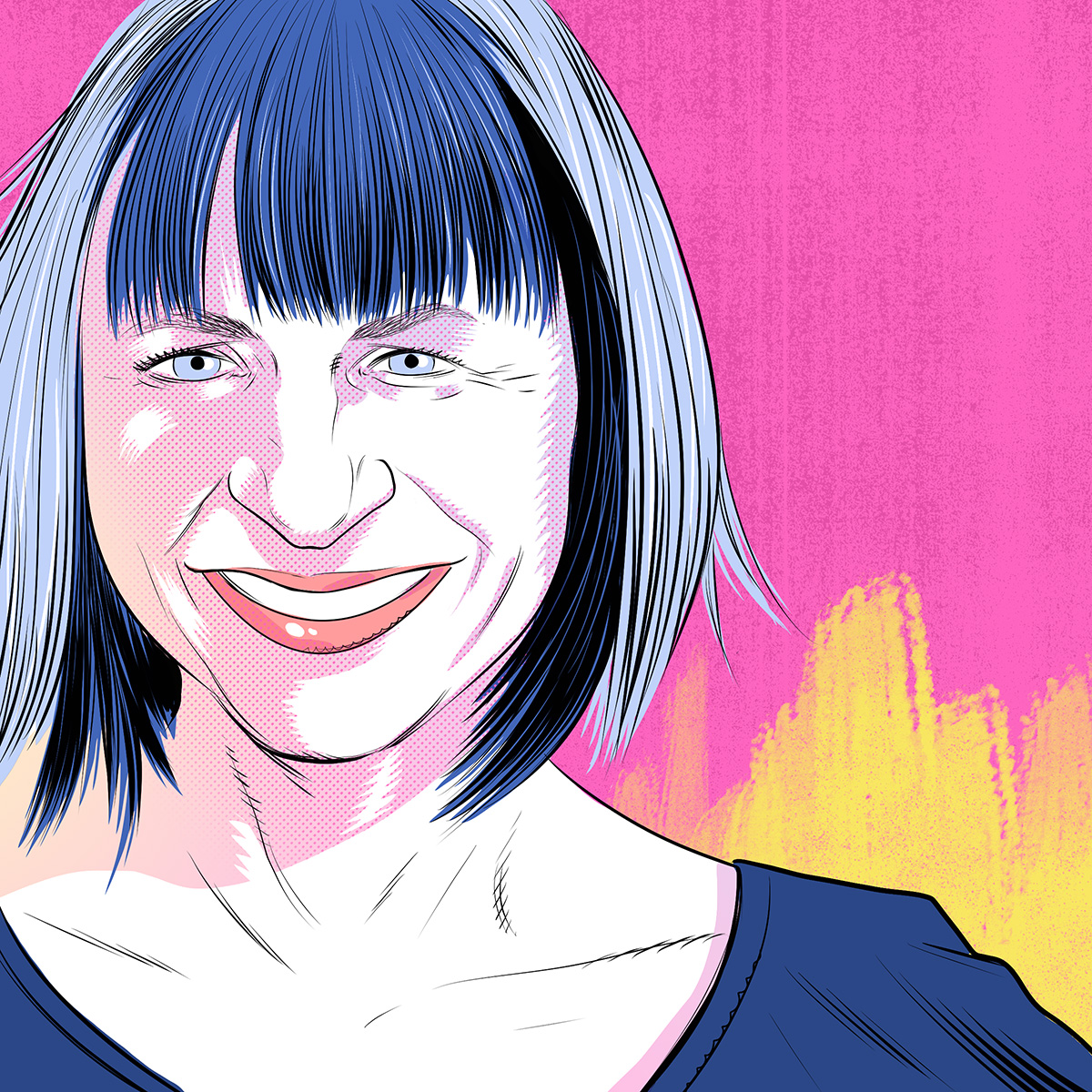
Peggy Rajski
Dean of the School of Film & Television at Loyola Marymount University and founder of The Trevor Project
In 1995, Peggy Rajski won an Academy Award for Best Live Action Short for her directorial debut, Trevor, a poignant comedy about a young teen whose world is turned upside down when word spreads at school that he might be gay. The huge response it received compelled Rajski to take on a new challenge in her career, founding the groundbreaking non-profit The Trevor Project, America’s first 24/7 crisis intervention and suicide prevention organization dedicated to LGBTQ+ youth. Rajski now brings the knowledge and leadership skills from her career as a filmmaker, activist, and academic to her role as dean of LMU’s School of Film and Television in Los Angeles, one of the top 10 film schools in the country.
“At SFTV, my leadership is rooted in the strong belief that — no matter what platform, form or genre, from comedy to drama, gaming to feature films — movies have a profound ability to shape and influence culture. They are our greatest ambassadors for positive social change. That’s what makes entertainment so powerful. I take that power very seriously, and want our students to as well.
2020 presents an incredible opportunity for every industry and institution — corporations, university, non-profits, government agencies — to realign its priorities for the greater good. In the entertainment sector, the industry is trying to figure out how to respond to radical changes in production and distribution, as well as demands for better representation in front of and behind the camera — something I’ve spent decades fighting for.
I think our society is hungering for values-driven leadership that puts people first. This is the sort of leadership that the next generation is looking for: leaders who have a genuine concern for protecting humanity, for safeguarding our planet and all its inhabitants, who understand that responsible leadership in business encompasses more than simply the bottom line.
When I directed the short film Trevor, that film led to not only winning an Oscar, but it also led me to do something I never expected to do, which was to create and launch the non-profit The Trevor Project. I saw a gap in the marketplace for a valuable service to LGBTQ+ youth that no one else was filling, and decided that I couldn’t really live with not doing something.
To me, this is what ethical leadership is all about: not only envisioning what is possible, but wrangling the resources needed to bring that vision to life. To do this you must either work through and adapt existing infrastructure, or build it from scratch. Either way it’s not easy, but that’s also what makes it fun! Your ability to spot talent, especially talent on the rise, is a critical part of leading, as well as finding a way to nurture curiosity. Leaders should create a safe environment where all are free to question why things are being done a certain way and to suggest changes and improvements. Leaders must also be willing to listen to opposing points of view, and to take a certain amount of risk.
What I know and learned from filmmaking is that you always figure it out. That is the mantra I share with everyone I work with: ‘We’ll figure it out.’ And we always do. Together.”
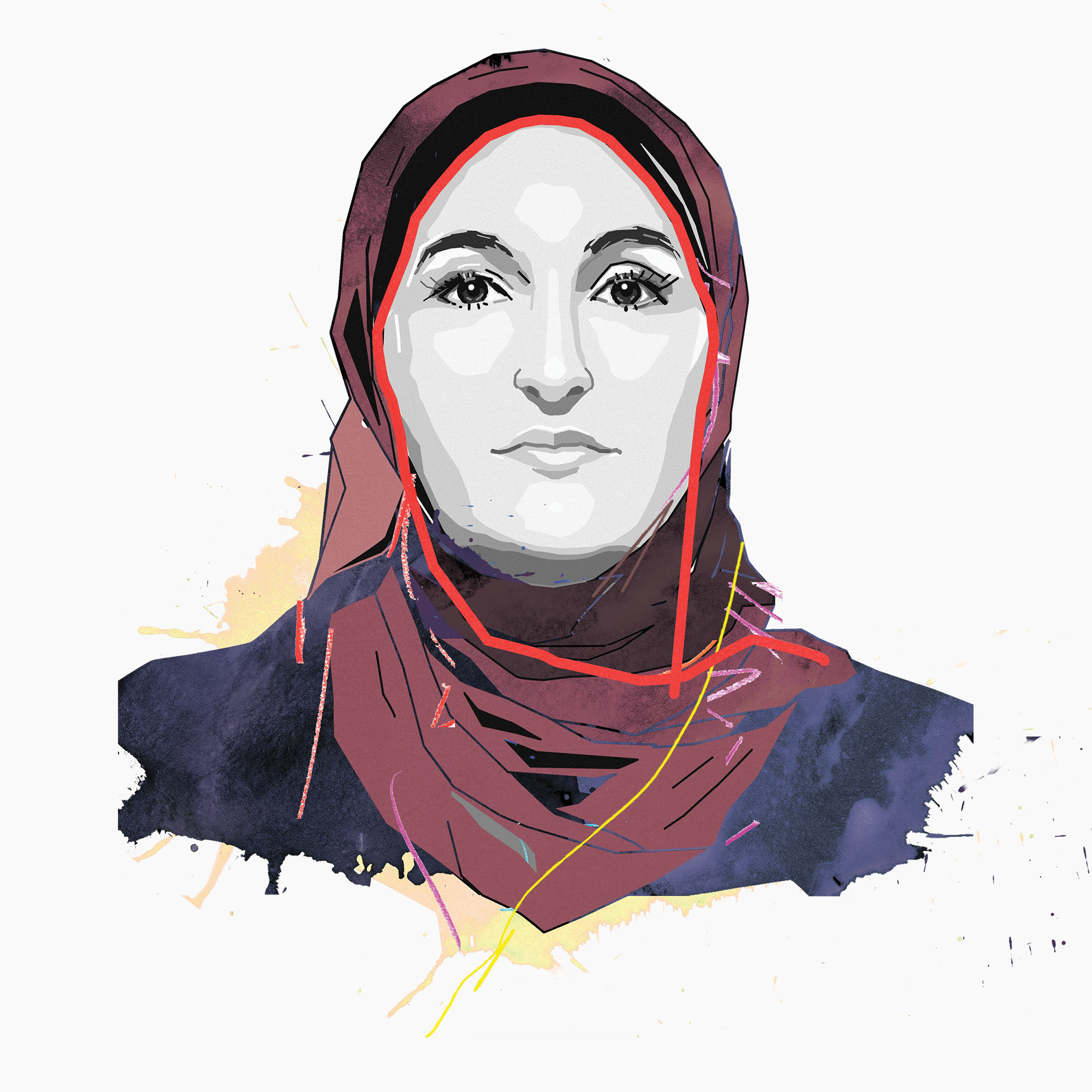
Linda Sarsour
Social Justice Advocate
Co-founder of intersectional social justice organizationUntil Freedom, Linda Sarsour is an award-winning racial justice and civil rights activist, seasoned community organizer, and mother of three. A Palestinian Muslim American born and raised in Brooklyn, Sarsour is the former Executive Director of the Arab American Association of New York, co-chair of the Women’s March on Washington, and co-founder of the first Muslim online organizing platform,MPower Change. Sarsour is also the author ofWe Are Not Here to Be Bystanders: A Memoir of Love & Resistance.
“To be a leader in 2020 requires courage. It means to be unapologetic about who you are and where you came from. To be a leader is to stand up boldly against the status quo regardless of the consequences and fight for the people you love with everything you have. Being a leader means you have the humility to follow the leadership of others.
Leadership is ever-evolving. We are taught that we need one charismatic leader like a Dr. Martin Luther King, Jr or Malcolm X, but we understand in this time we have a leaderful movement. Leaders with different expertise, skills and talents. There is space for many leaders to lead our communities who are aligned on the right values and principles.
Moving forward, we must begin investing in leadership of kids at a very early age. Young people are our present and our future. We must instill in them the qualities necessary to be great and impactful leaders. I also want to people to respect and follow the leadership of Black women. They are determined, they are strategic and they have a radical love for our people that brings tears to my eyes. They have proven over and over again that they are the leaders our countries need.”
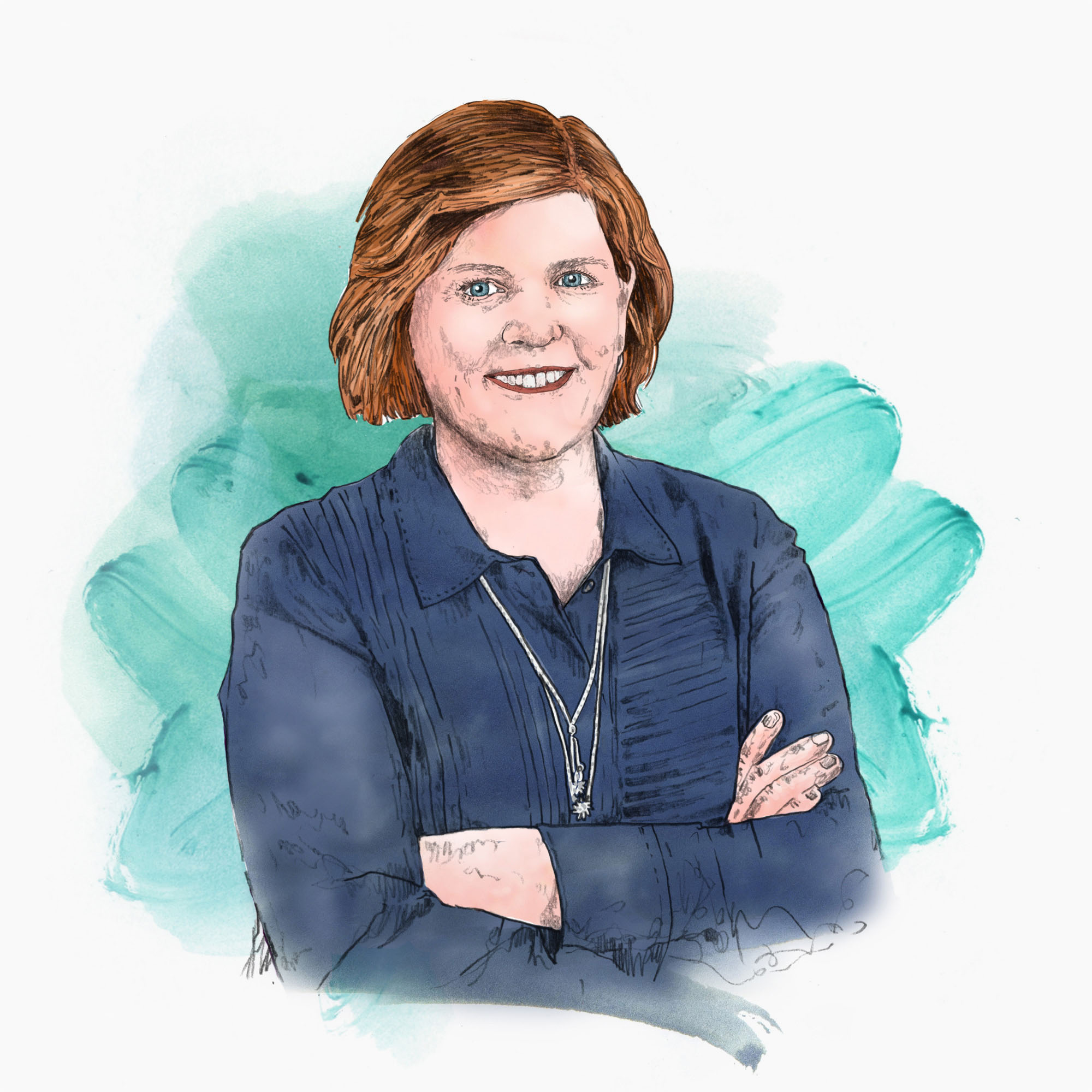
Lynn O’Connor Vos
CEO, Muscular Dystrophy Association
Lynn O’Connor Vos is President and CEO of the Muscular Dystrophy Association (MDA), dedicated to transforming the lives of people with muscular dystrophy, ALS, and other neuromuscular diseases through innovations in science and care. Her work across all of MDA is paving a new path forward in terms of understanding neuromuscular disease and enabling life-changing innovations in research, treatment and care. Under her leadership MDA is launching The MDA Kevin Hart Kids Telethon — a relaunch of the legendary Jerry Lewis MDA Telethon with Kevin Hart joining as host.
“Being a leader in 2020 means taking action rather than contemplating. It means embracing innovation and pivoting quickly to adapt to challenges. It means never letting a crisis go to waste. For MDA, it means remaining laser focused on our mission and doing all we can to continue to fund our life-changing research.
Outstanding leadership today equates to the ability to be positive, innovative and work harder than ever to be inclusive and collaborative in the new virtual world. It is a surprise to all of us how effective our teams have become in the new technology-driven work model. The most important skill for leaders on screen is to be positive, smile more and listen harder to make every effort to understand the needs of the employees and organization. For those of us who have had to furlough workers, it is so important that we demonstrate our empathy to the individuals and families who have been impacted. My own goal at MDA is to come out of the pandemic with a higher level of connectivity to the employees and our constituents than ever before.
I think this experience has forever changed the workplace. I would like to see the specific skill sets we have developed during the pandemic — innovation, connectivity, urgency, resilience — live on.”
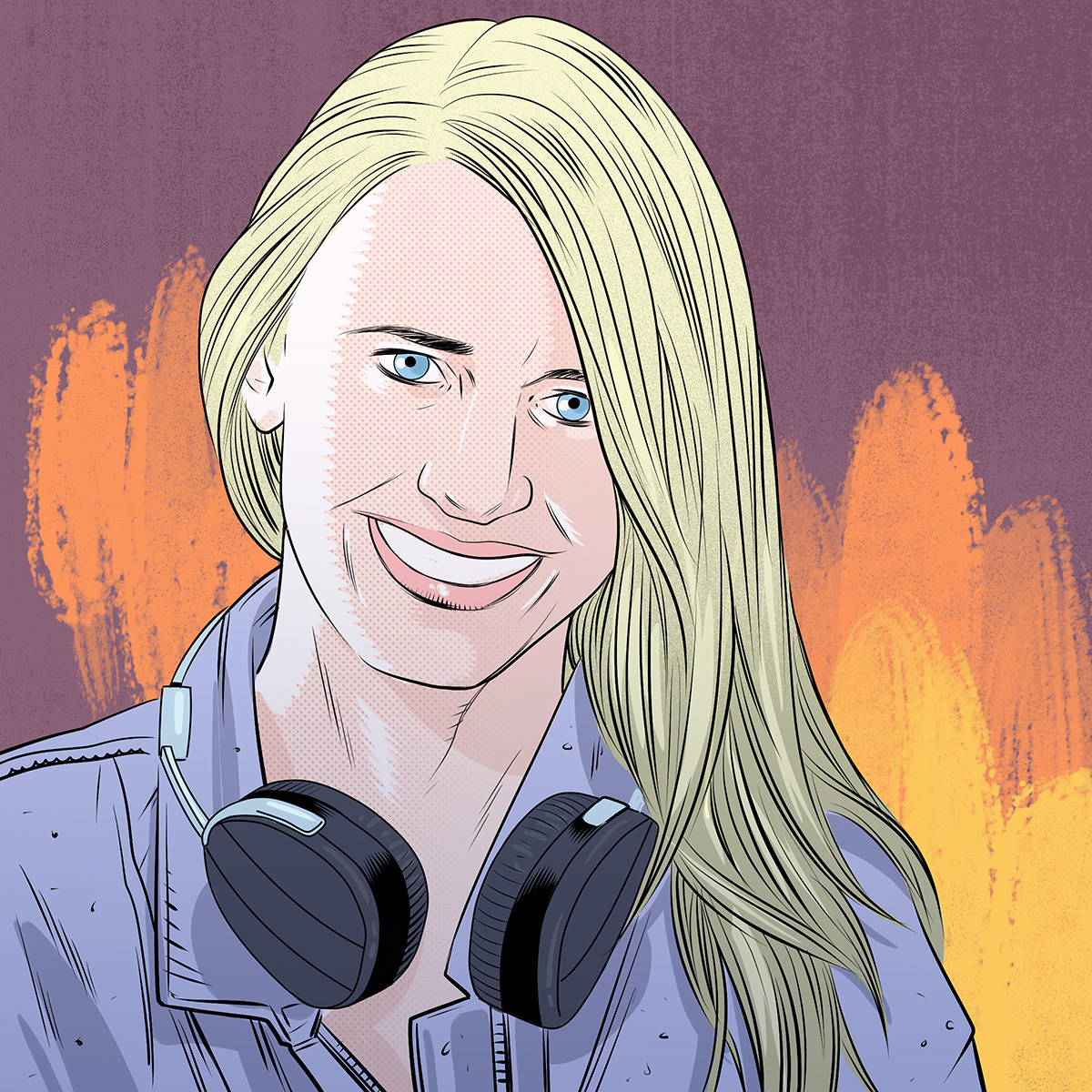
Bridget Hilton
Founder, LSTN Sound Co.
Bridget Hilton started LSTN Sound Co. in 2012 to create a more inspiring audio brand. After seeing someone hear for the first time, she decided to focus her efforts on creating change through the power of sound and music. Through proceeds of sales from their premium headphones and speakers, LSTN has helped more than 30,000 people in 10 countries hear for the first time through its charity partner, the Starkey Hearing Foundation. She has received accolades such as Forbes and Inc Magazine’s 30 Under 30, Origin Magazine’s Top 100 Creatives and a NAWBO Rising Star.
“In what is the toughest year of life thus far for many of us, being a leader in this time means listening to your customers and staff with empathy and compassion — and taking the feedback to make the company better. Traditionally, leadership was all about power, and basically telling others what to do. Through the trials and tribulations of 2020, I believe servant leadership is the right direction at the moment.
I think the leader(s) of a company are increasingly a physical and emotional representation of their company — as in, if a CEO has certain values that do not align with the consumer, they will vote with their wallet and choose a competitor instead. I have noticed a massive shift in the people in my life researching leadership at companies before they purchase an item from them. So it is increasingly important that the values and personality of the leadership aligns with what the customers values are.
I’d like to see leaders empowering their staff to make important decisions and help guide the direction of the future of the business. Being inclusive to hiring all walks of life and maintaining a diverse staff needs to be a priority. As young people rise to leadership positions, I think it’s increasingly just as important that they have the business skillset as well as soft skills, which often isn’t a significant part of training or concern.”
The Charge will help you move better, think clearer and stay in the game longer. Subscribe to our wellness newsletter today.




